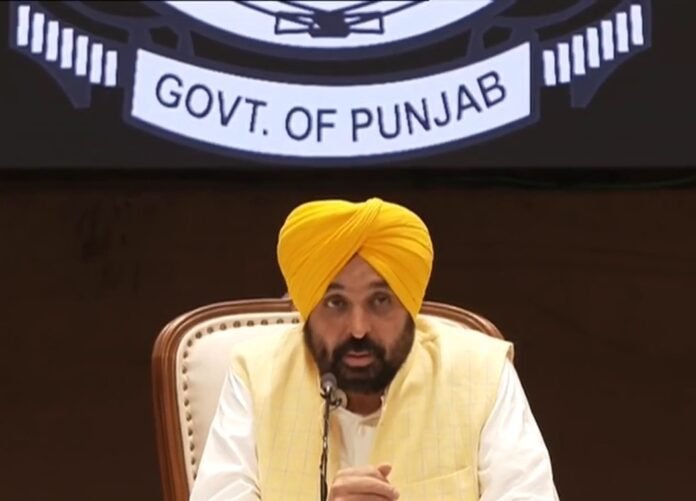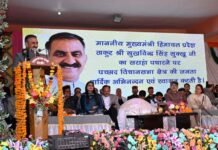Punjab Chief Minister Bhagwant Mann has unveiled a comprehensive relief and rehabilitation plan for flood-affected villages, announcing a ₹100 crore allocation to restore normalcy and protect public health. Addressing the press, the Chief Minister said that while floodwaters have receded in several regions, the government is now focused on large-scale clean-up and disease prevention campaigns to ensure life returns to normal as quickly as possible.
The plan includes the deployment of JCB machines, tractor-trolleys, and a workforce in every affected village to remove debris and mud left behind by the floods. Following this, extensive fogging operations will be carried out to prevent the outbreak of vector-borne diseases. Each of the 2,300 affected villages will receive an initial token grant of ₹1 lakh, with additional financial support available if required. The entire cost of the operation, Mann assured, will be borne by the Punjab government.
Setting strict timelines, the Chief Minister announced that the clearance of soil and debris will be completed by September 24–25, and by October 15, all public places across the villages will be thoroughly cleaned. He emphasized that Punjab had fought this natural disaster with unity, and now the focus is on rebuilding stronger and safer communities.
Public health remains a top priority, with medical camps being established in all flood-hit villages. Of these, 1,707 villages will have permanent medical staff stationed at community-designated spots to address local needs. Over 550 ambulances will also be deployed as part of the emergency response network. Mann stated that vaccination drives and health monitoring have already started to prevent any potential spread of disease among both humans and animals.
Animal welfare has also been included in the rehabilitation plan, as over 2.5 lakh livestock across 713 villages were impacted by the floods. Veterinary teams have been stationed in each affected village to provide treatment and preventive care for cattle and other animals. “We are determined to ensure that neither humans nor animals suffer from post-flood illnesses,” the CM underlined.
On the economic front, Bhagwant Mann reassured farmers that the government has begun preparations to protect agricultural livelihoods. He noted that the paddy crop (zhona) has already started arriving in mandis 15 days earlier than expected, and the government’s official procurement will begin on September 16. This step, he said, will not only stabilize farmer incomes but also reassure rural communities that Punjab’s agricultural backbone will remain strong despite natural calamities.
The Chief Minister also highlighted that infrastructure repair is already underway, with restoration of roads, power supply, and basic amenities being treated as urgent priorities. By strengthening medical facilities, deploying disaster response systems, and safeguarding the agrarian economy, the government’s holistic approach reflects the urgent need for such large-scale intervention. Natural disasters leave behind not only physical destruction but also serious health risks and economic setbacks, making immediate, coordinated state action crucial for recovery.
Mann called on citizens to work closely with local officials and report any health concerns without delay. “This is a difficult time, but with collective strength and government support, Punjab will recover swiftly and emerge stronger,” he said.





